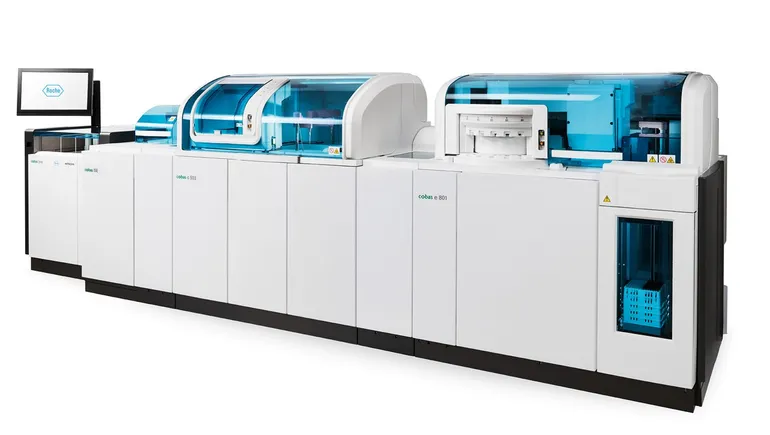Dive Brief:
- Roche has received the Food and Drug Administration’s breakthrough device designation for a blood test to support earlier diagnosis of Alzheimer’s disease, the Swiss drug and diagnostics company said Thursday.
- The test, once approved, could help healthcare providers identify whether amyloid pathology, a marker for Alzheimer’s disease, is present or absent in patients.
- The Elecsys pTau217 plasma biomarker test is being developed as part of an ongoing partnership between Roche and Eli Lilly.
Dive Insight:
The biomarker pTau217 is a fragment of the protein tau that has shown the ability in research to distinguish Alzheimer’s disease from other neurodegenerative disorders.
No FDA-authorized pTau217 or blood tests exist for Alzheimer’s detection.
New and emerging Alzheimer’s therapies aimed at slowing cognitive decline in the earlier stages of the disease call for confirmation of amyloid pathology, yet the only methods currently cleared for that task are cerebrospinal fluid (CSF) tests and amyloid positron emission tomography, or PET, scan imaging, according to Roche.
Some 75% of dementia cases remain undiagnosed, even as the incidence of Alzheimer’s disease is growing worldwide, Roche said.
The company said its blood test could help broaden and speed access to diagnosis and appropriate care, including participation in clinical trials and approved disease-modifying therapies.
“We believe pTau217 is going to be crucial in the diagnosis of Alzheimer’s disease. We plan to leverage our installed base of diagnostic systems, which is the largest in the world, to ensure we are able to create access to this test for those who need it the most,” Matt Sause, CEO of Roche Diagnostics, said in a statement.
A positive Elecsys pTau217 result indicates a high likelihood of having a positive amyloid PET/CSF result, while a negative Elecsys pTau217 result indicates a high likelihood of having a negative amyloid PET/CSF result, the company said.
Roche already has CSF assays on the market.
The breakthrough designation allows Roche to work closely with the FDA, get direct feedback through the premarket review phase and receive prioritized review of regulatory submissions for the device.

